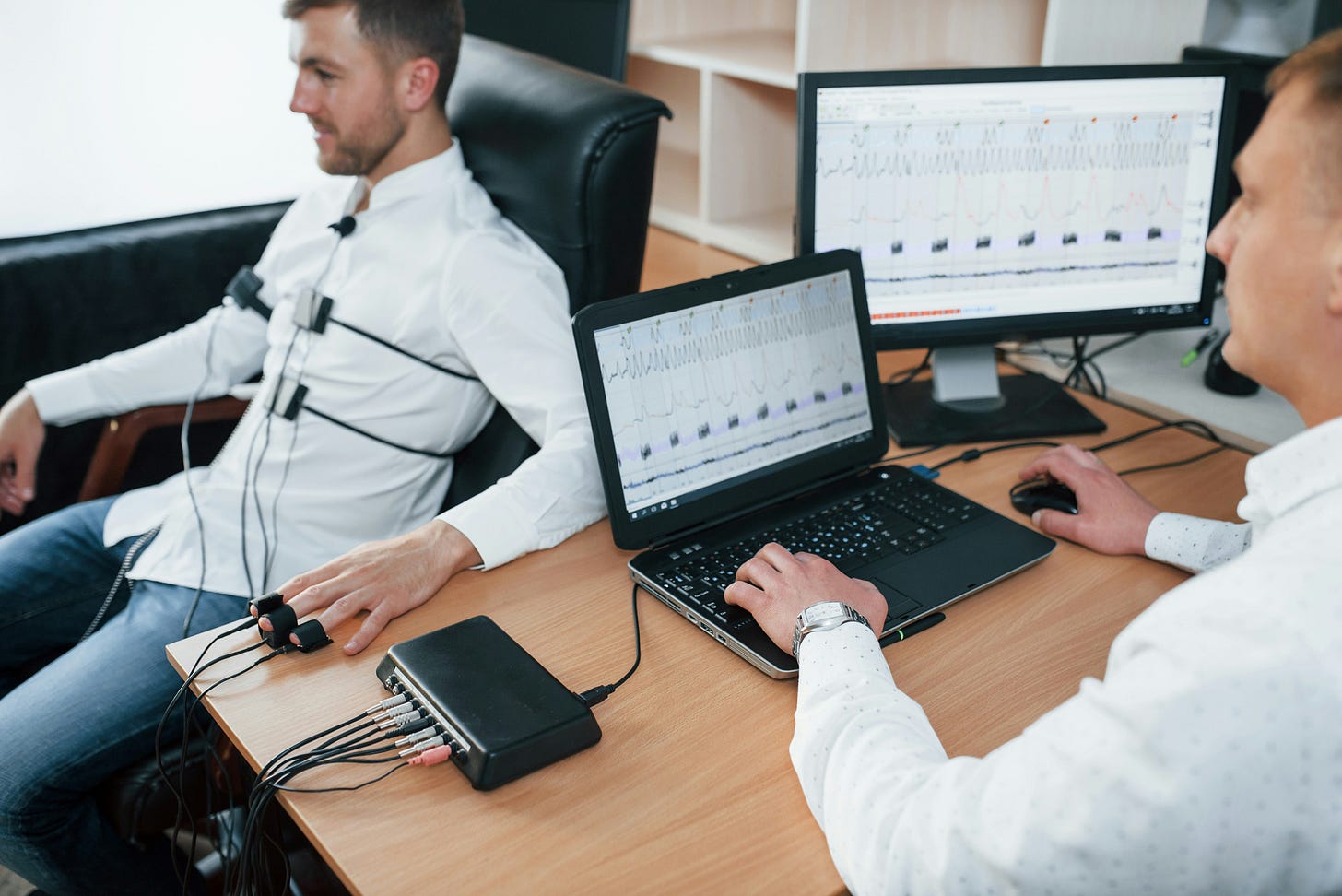Lie Detectors
They don't work.
I worked for the government way back when the American people were the ones in charge, when Congress actually did its job, and we had a President who cared about doing the right thing. That was a while ago. During the first Trump administration, things got a little wacky, but it didn’t feel out of control. Now it is full-blown nutball, with the loonies in charge of the asylum.

I could point to several ways that this is true, from our weekly tariff rollercoaster to the non-answers that we hear from the press secretary, but let me focus for a minute on the recent witch hunt being conducted by FBI Director Kash Patel. He has decided to employ old-fashioned lie detector tests to test the veracity of his staff, not to see if there are communist sympathizers or spies among them, but instead to try to see if they have been bad-mouthing him. (It reminds me of a junior high school note secretly passed in class: “Do you like me? Yes/No.”) The Atlantic reported that, “In interviews and polygraph tests, the FBI has asked senior employees whether they have said anything negative about Mr. Patel.” (Tom Nickles, The Atlantic, July 11, 2025, Tinker Tailor Soldier MAGA) It appears that the head of our nation’s highest law enforcement agency has a very thin skin, not to mention a poor grasp of priorities.
Many years ago, I was part of a partnership that managed an honesty testing company. The name of the firm was Reid Psychological Systems. It published paper and pencil tests that were used to determine the integrity of job applicants. We used statistical techniques to figure out how honest people would answer questions differently than others. The company had an interesting history — it was a spinoff from a polygraph testing company named John E. Reid and Associates, which is still in business training professionals on interviewing techniques. At that time, both integrity testing and polygraph testing were under a lot of scrutiny, and I became familiar with both technologies.
Studies were compiled by the American Polygraph Association which showed that polygraphs were up to 90% accurate. Then a number of studies outside of the polygraph community showed very high false positive rates of 50% or more. The US Supreme Court decided that individual jurisdictions can choose to admit polygraph evidence in court, and the US Court of Appeals for the Eleventh Circuit said polygraph results can only be used in court if both parties agree to it. (Federal Practitioner, July 2019, 36(7), 316-321)
Think about this: you are being sued, and your response to the next question will determine your guilt or innocence. Do you want a 1 in 10 chance that you will be called a liar when you are telling the truth? How about the same odds as a coin flip? That’s what the independent studies say you are facing.
Polygraph machines measure physiological changes like heart rate, blood pressure, and respiration. These changes could occur just because the person is nervous. The American Psychological Association says, “There is no evidence that any pattern of physiological reactions is unique to deception. An honest person may be nervous when answering truthfully and a dishonest person may be non-anxious. Also, there are few good studies that validate the ability of polygraph procedures to detect deception.” No evidence.
My one satisfaction in this situation is that even by using this outdated and problematic technology, paranoid Kash Patel will never really know who is “loyal” by his definition, and who is not. He will never be certain. Of course, several people who had false positive results may be out of a job. But this administration doesn’t seem to care.



